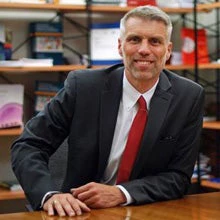While International Women’s Day 2022 has passed, it is critical that the Europe and Central Asia region maintain a focus on gender equality. Without identifying and grappling with existing inequalities and the impacts of such gender gaps, the region will never reach its full economic potential.
While Georgia has made efforts to enhance legal protections and inclusion, obstacles remain. The economic costs associated with gender gaps in labor participation could be reducing GDP by 11%. Thus, in reflecting on some of the progress achieved, we must also recognize that inequalities and disadvantages persist:
- Birth gender preferences: The country’s sex ratio at birth imbalance has been reduced, improving significantly from 111 boys born alive per 100 girls in 2007 to 106 in 2018. Yet a sizeable share of Georgians, especially in rural communities, still express preferences for sons.
- Education: Girls in Georgia are almost universally enrolled in primary and secondary schools, and more women than men attend colleges and universities. But the education system struggles to provide quality learning and the skills necessary for participation in the modern economy. While girls perform better than boys in terms of school enrollment, learning, and health outcomes, they still only achieve 61% of their human capital potential by age 18 (Human Capital Project 2020).
- Parental Leave: Georgia introduced legislation to guarantee paid parental leave in 2021 a reform that has helped improve the country’s performance in the Women Business and the Law 2022 report, where Georgia’s 2022 score (88.1 out 100) was higher than the average for Europe and Central Asia (84.1). Further improvement of legal protections for women requires addressing unresolved inequalities in laws affecting work opportunities after motherhood, as well as disparities in the size of a women’s pension benefits.
- Political representation: In 2022, women hold nearly 19 percent of all parliamentary seats, compared to 6.5 percent in 2010. Between 2010 and 2022, the share of ministerial-level positions occupied by women rose from 5.6 percent to 15 percent. Although, the female political representation has increased since 2010, the progress remains slow and insufficient.
Gender Gaps Impact Lives and Livelihoods
Gender gaps and societal pressures have tangible impacts on women’s lives and livelihoods, particularly in terms of earnings potential and resilience to external shocks like climate change and COVID-19:
Earnings potential
According to Geostat data, only 40.5% of working-age women actively participating in Georgia’s labor markets compared to 62.9% of working-age men. Women observe slightly lower unemployment, but they work less hours per week and have lower wages than men. This wage inequality is further exacerbated by the fact that women in Georgia are often segregated to activities with lower earnings potential, such as agriculture, education, and healthcare, while being generally excluded from industrial activities and careers in science, technology, engineering, and math (STEM). Overall, even after taking in consideration demographic and job characteristics, women in Georgia earn roughly 16% less than men.
Beyond that, women in Georgia lack options to diversify their incomes. The livelihoods of a large percentage of Georgian women depend on public transfers. 40% of women in Georgia (and 25% of men) receive some form of pension or public transfer, with over 15% depending entirely on old-age pensions. And female entrepreneurship - a major force that empowers women, diversifies incomes, and fosters overall economic growth - faces limitations, resulting in only one-fifth of firms having female participation in ownership and only 16% of firms with a female CEO or senior manager.
Climate Resilience
The 2022 International Women’s Day focused on Gender equality today for a sustainable tomorrow, given that structural factors leave women disproportionately more vulnerable to climate change and climate change amplifies existing gender inequalities.
Women in Georgia are more likely employed in agricultural activities than men, making women’s incomes more vulnerable to climate variations, natural disasters, as well as exogenous price changes for produce. Moreover, women and girls are already overburdened by family, social, and economic responsibilities that could become even more acute during periods of climate crisis and external shocks. Roughly 50% of women are kept out of the labor force due to domestic tasks compared to only 5% of men.
COVID-19
Women have also been disproportionately impacted by the COVID-19 crisis. Women are most vulnerable to such shocks because of their role as primary caregivers and homemakers, their occupational segregation, their lack of labor protections and legal rights to assets, biased intra-household allocations, and prevailing social norms and behaviors. Survey data from the Georgia High Frequency Phone Survey (GHFS) collected by the World Bank confirms that 32% of female workers had been unemployed at some point during the pandemic, and rising prices in Georgia, especially for food items, impose additional challenges for poor households, a large share of which include children and are dependent on women.
Only by highlighting and identifying these gender gaps can Georgia address them. The country will need to develop relevant skills among girls, end occupational segregation and promote female participation in STEM fields, provide formal care for children and the elderly, assist women’s labor transitions and fight discrimination in labor markets, and challenge societal mindsets and biases.
The World Bank has been supporting such an agenda through its 2019-2022 Country Partnership Framework (CPF) for Georgia, which includes initiatives aimed at enhancing female employment and civic engagement. We remain dedicated to closing existing gender gaps and supporting women’s economic empowerment so that all Georgians can pursue their economic and social potential. Only then can Georgia achieve truly sustainable and inclusive economic growth.



Join the Conversation